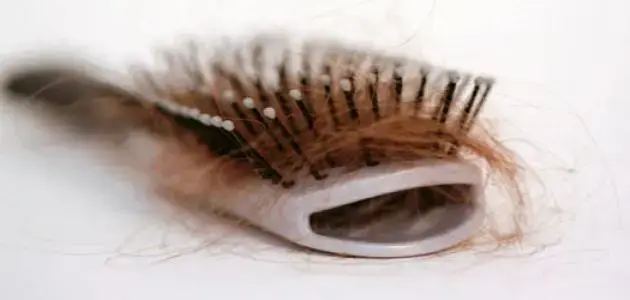Hair loss is one of the most common issues affecting both men and women. It can result from various factors including health conditions, natural causes, or genetics. Losing up to 30 hairs a day is considered normal, as hair naturally goes through a life cycle—from growth to weakening and shedding. On average, a hair strand’s life cycle lasts about eight years, with the shedding phase lasting between two to four months. During this phase, new hair begins to grow. However, if hair loss exceeds this amount significantly and new growth slows down, consulting a doctor is recommended to address the problem.
Vitamin Deficiency and Hair Loss
One of the leading causes of hair loss is a deficiency in essential vitamins. Some of the most important vitamins linked to healthy hair include:
Iron
Iron plays a crucial role in transporting oxygen in the blood to all body cells, including hair follicles. When iron levels drop below normal, it can cause anemia and lead to hair loss.
Zinc
Zinc is vital for cell growth, repair, and maintaining the secretion balance of glands associated with hair follicles. A deficiency weakens hair and promotes shedding.
B Vitamins (especially B6, B12, and Folic Acid)
These vitamins support the production of red blood cells, which in turn enhances oxygen supply to hair follicles, aiding healthy hair growth.
Vitamin C
Vitamin C is essential for collagen production, which nourishes hair tissue and helps prevent hair loss.
Other Causes of Hair Loss
- Pulling hair tightly back, excessive styling, and use of harsh chemicals.
- Bad habits like frequent hair pulling or plucking.
- Thyroid gland dysfunction.
- Autoimmune diseases, where the immune system mistakenly attacks hair follicles, causing hair loss.
- Poor scalp hygiene and fungal infections that weaken hair roots.
- Chemotherapy and certain medications, including some birth control pills.
- Deficiency of minerals and vitamins essential for hair growth due to poor nutrition.
- Menopause in women.
- Fatigue, stress, and psychological tension.
Effective Treatments for Hair Loss
There are several natural and lifestyle approaches to help reduce hair loss and stimulate healthy hair growth:
- Massaging the scalp with natural juices such as onion, ginger, or aloe vera juice, leaving it overnight before washing. These juices stimulate blood circulation and nourish hair roots.
- Scalp massages with green tea, rich in antioxidants that promote hair growth and prevent loss.
- Using warm natural oils like coconut or olive oil, applied for at least an hour before shampooing.
- Practicing yoga to relax the body, reduce stress, and balance hormones.
- Eating a balanced diet rich in fruits, vegetables, grains, legumes, proteins, and omega-3 fatty acids to supply the hair with essential nutrients.
- Taking iron supplements to treat anemia and using multivitamins to correct any nutritional deficiencies.
Leave a comment
Your email address will not be published. Required fields are marked *




